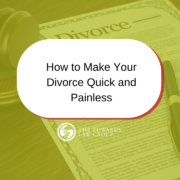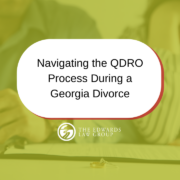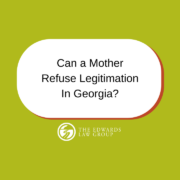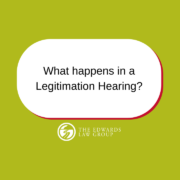How to Make Your Divorce Quick and Painless
Divorce can be a challenging time, but it doesn’t have to drag on for months or years. With the right approach, you can expedite the process and move forward with your life. These 10 steps will provide you with practical tips to help make your divorce quick and as painless as possible.
Why is a Quick Divorce Beneficial?
A speedy divorce saves time, money, and emotional distress, allowing you to start the next chapter of your life sooner. Quick divorces reduce mental burdens, fostering a healthier transition to post-divorce life. Minimizing legal proceedings decreases ongoing conflicts, making it easier to maintain a cordial relationship with your ex, especially important if children are involved.
Step 1: Decide on the Type of Divorce
Not all divorces are created equal. You can choose between an uncontested divorce, where both parties agree on all terms, or a contested divorce, where disagreements need to be settled in court. An uncontested divorce is usually quicker and less expensive.
What is an Uncontested Divorce?
In an uncontested divorce, both parties agree on key issues like property division, child custody, and spousal support, speeding up the process by avoiding lengthy court battles. This approach fosters cooperation and reduces animosity, setting a positive tone for post-divorce interactions. Open communication and fair negotiation are crucial for a smooth process, and consulting a mediator can help anticipate potential disputes.
Step 2: Gather All Necessary Documents
Having all your important documents ready can significantly speed up the process. Make a checklist of what you need, such as financial statements, tax returns, mortgage documents, and any prenuptial agreements.
What Documents Will You Need?
You’ll need:
- Financial statements
- Tax returns (last 3 years)
- Mortgage documents
- Prenuptial agreements
- Child custody agreements (if applicable)
Prepare documents in advance to save time and avoid disputes over accuracy. Organize them for easy sharing with your lawyer, spouse, or mediators. Use digital copies for easy access and security.
Step 3: Communicate Openly with Your Spouse
Communication is key. The more you and your spouse can discuss openly and honestly, the quicker you can reach an agreement.
How Can Open Communication Help?
By addressing property division and child custody upfront, you can avoid misunderstandings and delays. Have these discussions in a neutral setting to manage emotions. Communication should be clear and respectful, focusing on resolving issues. Using “I” statements instead of accusatory language maintains positive dialogue. If emotions escalate, consider involving a therapist or mediator to help.
Step 4: Consider Mediation
Mediation is a great way to resolve disputes without going to court. A neutral third party helps you and your spouse reach an agreement on contentious issues.
What is Mediation Like?
Mediation involves a mediator who facilitates discussions between you and your spouse. It’s typically faster and less stressful than court. The mediator guides the conversation without making decisions, ensuring both parties’ concerns are addressed. This encourages mutually beneficial solutions, allowing both parties to retain some control over the outcome. It can also be less expensive than litigation, freeing up resources for other needs.
Step 5: Be Willing to Compromise
Flexibility can go a long way in speeding up the divorce process. Be prepared to give a little to get a little.
Why is Compromise Important?
Compromising on certain issues can expedite reaching an agreement, speeding up the whole process. It demonstrates a willingness to move forward and can improve post-divorce relationships. Understanding your spouse’s needs can help you make concessions for quicker resolution. Prioritize important issues and be flexible on less critical ones. Compromise sets a constructive tone for future interactions.
Step 6: Hire a Reputable Divorce Lawyer
A good divorce lawyer can make a world of difference. They will guide you through the legal formalities and help expedite the process.
How to Choose the Right Lawyer?
Seek a lawyer experienced in family law with a solid track record for quick case settlements. Personal recommendations and online reviews are helpful. A good lawyer will represent your interests and advise on efficient resolutions. During consultations, inquire about their approach to divorce cases and choose someone proactive and understanding.
Step 7: File the Paperwork Correctly
Incorrect or incomplete paperwork can cause delays. Ensure that all forms are filled out correctly and submitted on time.
What Forms Do You Need to File?
Common forms include:
- Divorce petition
- Financial disclosures
- Child custody agreements (if applicable)
Ensure all forms are accurate before submission and make copies for your records. Consult your lawyer to confirm compliance with local legal requirements, as these can vary.
Step 8: Avoid Court if Possible
Going to court can prolong the divorce process. Try to resolve as many issues as possible outside the courtroom.
How Can You Avoid Court?
Mediation and open communication can help you settle disputes without the need for a judge. Even if some disputes need legal intervention, minimizing them through proactive settlement of other issues will reduce court time and associated costs. Cultivating a problem-solving mindset can help both parties work together to avoid unnecessary legal entanglements.
Step 9: Take Care of Yourself
Divorce is emotionally taxing. Taking care of your emotional and physical well-being can help you make better decisions and speed up the process.
How Can Self-Care Help?
Taking care of yourself reduces stress and improves focus, easing the demands of divorce. Regular exercise, a healthy diet, and adequate sleep are essential self-care elements. Seek support from friends, family, or a mental health professional for emotional challenges. By maintaining your well-being, you’re better equipped for calm and effective negotiations and legal proceedings.
Step 10: Focus on the Future
Keeping your eye on the future can help you get through the divorce more quickly. Focus on what comes next rather than dwelling on the past.
Why is Focusing on the Future Important?
Thinking about your future can motivate you to resolve current issues quickly and efficiently. It helps shift your perspective from loss to new beginnings, encouraging proactive steps towards a positive post-divorce life. Create goals and a vision for your new life that keep you motivated to finalize the divorce efficiently.
Ready to Finalize Your Divorce Quickly?
At the Edwards Law Group, we understand that you want to move on with your life as soon as possible. Our team is dedicated to helping you achieve a quick and fair resolution. Reach out to us to schedule a consultation and find out how we can assist you in expediting your divorce process. We’re here to support you every step of the way, ensuring that your journey through this challenging time is as smooth and stress-free as possible.











